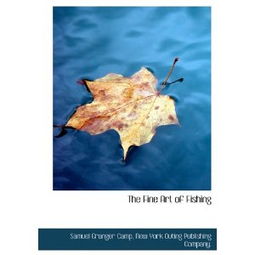Introduction:
Outdoor fishing is a beloved pastime that offers a perfect blend of relaxation and adventure. Whether you're a seasoned angler or a beginner, honing your fishing skills can significantly enhance your experience on the water. One of the most crucial aspects of fishing is learning how to effectively catch fish. In this article, we'll delve into various techniques and tips to help you improve your chances of hooking a big one. So, let's get ready to cast away and learn how to practice the art of catching fish.
Choose the Right Equipment:
The foundation of successful fishing lies in selecting the appropriate gear. Here are some essential equipment to consider:
- Rod and Reel: The choice of rod and reel depends on the type of fish you're targeting. A lightweight spinning rod is ideal for panfish and small species, while a heavy-duty baitcasting rod is better for larger fish.
- Line: The thickness of your line should match the fish you're aiming for. Thinner lines are more sensitive and less visible to fish, but they may break more easily under heavy pressure.
- Hooks: Hooks come in various sizes and shapes. Larger hooks are suitable for big fish, while smaller hooks are better for smaller species.
- Lures and Bait: The type of lure or bait you use depends on the fish you're targeting and the conditions of the water. Live bait, artificial lures, and natural baits like worms or insects can all be effective.
Learn the Basics of Casting:
A good cast is the key to presenting your bait effectively to fish. Here are some casting techniques to master:
- Backcast: Start by holding the rod with both hands, then pull the line back with your casting hand until the line is taut. Release the line as you bring the rod forward, allowing the line to unwind smoothly.
- Forward Cast: Similar to the backcast, but you'll be casting the line forward. Practice both casts until you can make them consistently and accurately.
- Casting Distance: Practice casting to different distances to get a feel for how far you can cast your bait without spooking the fish.
Read the Water:
Understanding the behavior of fish in different water conditions is crucial for successful fishing. Here are some tips to help you read the water:
- Observe the Surface: Look for disturbances in the water, such as ripples or splashes, which may indicate the presence of fish.
- Study the Bottom: Fish often hang near the bottom, so look for signs of structure, such as rocks, logs, or vegetation.
- Pay Attention to Weather: Fish behavior can be significantly affected by weather conditions. On windy days, fish may be more active, while on calm days, they may be more cautious.
Perfect Your Bait Presentation:

The way you present your bait to the fish can make a big difference in your success rate. Here are some tips:
- Match the Hatch: Use bait that closely resembles the natural food of the fish you're targeting. For example, if the fish are feeding on small minnows, use a minnow-like lure.
- Adjust Your Technique: Depending on the type of fish, you may need to adjust your retrieve speed, depth, and cadence. Experiment with different techniques to see what works best.
- Be Patient: Fish may take a while to respond to your bait. Be patient and give your presentation time to work.
Use the Right Techniques for Different Fish Species:
Different fish species have unique habits and preferences. Here are some general tips for targeting specific fish:
- Bass: Bass are known for their aggressive feeding behavior. Use bright, flashy lures to attract their attention and employ a variety of retrieve techniques.
- Trout: Trout are more cautious and sensitive to disturbances. Use lighter tackle and natural-looking baits, and approach the water carefully.
- Catfish: Catfish are bottom feeders and are attracted to smelly baits. Use stink baits, deadbaits, or live bait to catch them.
Practice, Practice, Practice:
Like any skill, fishing takes practice. Spend time on the water, experiment with different techniques, and learn from your experiences. The more you fish, the better you'll become at understanding the nuances of the sport.
Conclusion:
Outdoor fishing is an art that requires patience, practice, and a keen understanding of the fish you're targeting. By choosing the right equipment, mastering casting techniques, reading the water, perfecting your bait presentation, and adapting your approach to different fish species, you'll significantly improve your chances of catching fish. So, grab your rod, head to your favorite fishing spot, and start practicing these essential techniques. Happy fishing!












